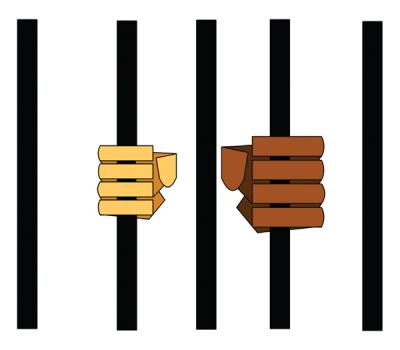When I was recently in Seoul, miles away from the sickening smell emanating from our local political cauldron, I reflected on the immense contribution of two outstanding and charismatic leaders who have brought peace in our troubled world through their wisdom.
Nelson Mandela is known to the entire world, first as a freedom fighter in apartheid South Africa, then as one of the longest serving political prisoners in the infamous Robben Island and subsequently as the first black President who transformed his country into a harmonious multiracial nation. Now living in retirement, he is regarded as a revered world statesman and provides a profound source of inspiration to emerging leaders all over the planet.
The other person is a great lady from Myanmar, formerly Burma. She is Aung San Suu Kyi, Burmese Leader of the Opposition. Having spent most of her adult life under home arrest at the hands of the brutal military regime of General Ne Win and General Than Shwe, she is still fighting her way to set her country on the democratic path through peaceful means. Aung San Suu Kyi may not be a household name outside Myanmar but her achievements in the political domain, her heroic behaviour in the face of nightmarish situations and her capacity to break slowly the steel of the military rulers have captured world attention. Though, she has not yet held the reins of power, I place her on same footing as Nelson Mandela for reasons which will become evident as one continues to read.
Born on 19 June 1945 in Rangoon, Aung San Suu Kyi is the daughter of Aung San who negotiated Burma’s independence from the British. Her father was assassinated by political rivals in 1947. While her mother held the post of Burma’s Ambassador in India in 1960, she studied Politics and Economics in Delhi and then in London. She obtained her Phd in 1985, and married Dr Michael Aris, a Britisher and together became parents of two boys, Alexander and Kim. She returned to Burma in 1988, hoping to get rid of the military regime through democratic process.
In the 1990 general elections, Aung San Suu kyi’s National League won 59% of national votes and 81% of seats in Parliament despite the fact that she was under house arrest. Defying international protests, the generals nullified the results and continued to rule the country with boots, whips and machine guns. Like Mandela, she suffered the worst forms of humiliation under house arrest. She was separated from her husband and children who remained in London. She could not even be by the side of her ailing husband who died in 1999.
Under more intense pressure from the UN and world leaders to institute democratic reforms and release Aung San Suu Kyi, the Myanmar Government organised new general elections in November 2010. They were boycotted by the Opposition as the military regime had put all their weight behind a political party composed of their own cronies. However, the new government decided to release Aung San Suu Kyi on the 13th Nov 2010 and since then has started a dialogue with her for gradual reforms. Despite all the atrocities committed by the military rulers, Aung San Suu Kyi, profoundly imbued in her Buddhist philosophy, is prepared to forgive and work for the good of her people.
Both Mandela and Aung San Suu Kyi have been deprived of their family and professional life by repressive regimes. Both have not harboured any animosity or feelings of revenge against the wrongdoers. Instead, they have favoured a spirit of dialogue based on the highest principles of tolerance, non-violence, justice and fairness. These two icons have received prestigious Awards from renowned organisations, including the Nobel Prize for Peace.
I have had the singular privilege to walk with Nelson Mandela each morning at the Royal Palm Hotel, Grand-Bay when I served as his Liaison Officer during the SADC Summit in Mauritius in 1998. What a towering personality ! As the world political scene was dominated at that time by the Monicagate affair in the US, I wanted to know his views, but did not find it proper to ask such a direct question. However, I had learned that after leaving Mauritius, Mandela would visit the US. Therefore, I enquired about his forthcoming trip to the US, subtly mentioning that it was a difficult time for President Clinton. Then, I got the answer. He told me that Clinton was a good US President who had done much for South Africa and the African continent as a whole and he would give him his full support during his visit to Washington. On the night of his departure, he was seen off at the airport by the Prime Minister but before boarding his Presidential aircraft, he saw me on the tarmac and shook my hands with a warm ‘Thank You’.
I have not had the honour of meeting Aung San Suu kyi. As a matter of fact, very few people have met her as she was stripped of her freedom to meet with people and travel both inland and abroad. I wish that when she recovers all her rights, the Government of Mauritius extends an invitation to that eminent lady to visit us, share her philosophical thoughts with us and also teach us what is the meaning of ‘Freedom from Fear’. I have extracted the following from one of her speeches :
“It is not the power that corrupts, but fear. Fear of losing power corrupts those who wield it and the fear of the scourge of power corrupts those who are subject to it.”
If you feel that the above quote has some relevance in the Mauritian context, then, what this other one from the Burmese Mandala :
“Government leaders are amazing. So often it seems they are the last to know what the people want.”
WISDOM: THE BURMESE MANDELA
- Publicité -
EN CONTINU ↻


